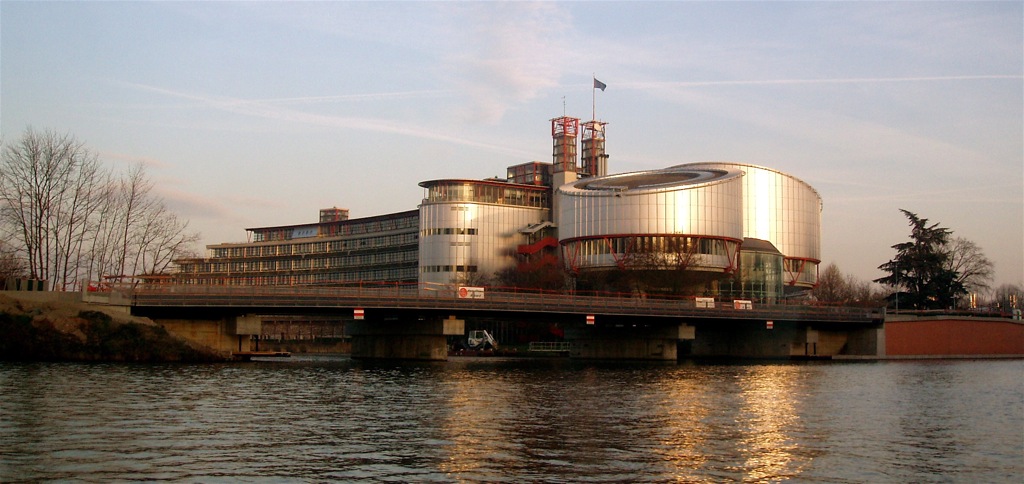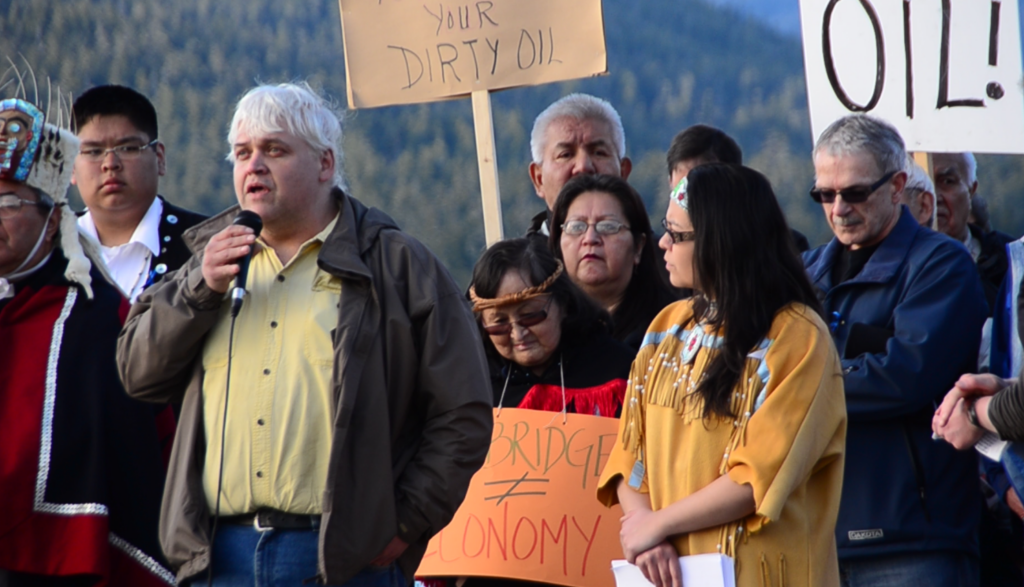Two historic developments last week are putting the climate crisis squarely on the docket of some of the world’s highest courts. On March 29, an international human rights court in Europe held a pair of hearings addressing government responsibility on climate change for the first time. That same day, the United Nations General Assembly adopted a resolution asking the International Court of Justice to weigh in on nations’ legal obligations to ensure protection of the climate system.
The outcomes of the proceedings, experts say, could significantly advance climate justice and accountability as well as clarify the requirements under international law for governments to curb climate breakdown.
The two cases argued before the European Court of Human Rights on March 29 accuse the governments of Switzerland and France of failing to take sufficient measures to fight climate change and protect citizens from worsening climate impacts, such as extreme heat and flooding. The alleged failings contribute to mounting risks to human life and health in violation of the European Convention on Human Rights, the cases claim.
In the first climate case ever to be heard by the European court, located in Strasbourg, France, lawyers representing more than 2,000 elderly Swiss women highlighted the urgency and immense peril the climate crisis presents, and argued that Switzerland is not doing its “fair share” to rein in greenhouse gas emissions.
“There is no time left. Dangerous climate change is with us all,” Marc Willers, a lawyer with the UK-based firm Garden Court Chambers, said during the hearing. He explained what would constitute Switzerland’s allowable level of emissions, as calculated by independent scientific experts, under the world’s remaining carbon budget — the amount of carbon dioxide that can still be emitted for temperature rise to stay below a given threshold, such as 1.5°C. Under current policies, Switzerland is expected to use up its share of this global budget by 2034 and then will be taking away from other countries’ shares. “This is carbon theft,” Willers said.
The case, Verein KlimaSeniorinnen Schweiz and Others v. Switzerland, is brought by an association called Senior Women for Climate Protection Switzerland and four individual elders. It argues that senior citizens, particularly women, are at heightened risk of severe health impacts, including death, from extreme heat events that are occurring more frequently as Earth warms. The senior women say that Switzerland’s inadequate climate policy leaves them exposed to more lethal heatwaves, in breach of their right to life and to family and private life under the European Convention on Human Rights. The Swiss domestic courts had previously dismissed the case, finding that elderly women are not uniquely harmed by climate change and that rights had not yet been violated.
Swiss government representatives said the Strasbourg court should similarly find the case “inadmissible” or alternatively find that no human rights violations have occurred. They defended Switzerland’s climate policy at the hearing and claimed that the state is “already doing what is expected in terms of climate protection.”
Should the European Court of Human Rights reject the government’s claims and rule favorably for the Swiss women, it “could set an important legal precedent” according to Katharina Rall, senior researcher in environment and human rights at Human Rights Watch. “This case could play an important role in holding governments to account for their inaction on climate change,” Rall wrote in a recent piece reflecting on the hearing.
Following the Swiss case, the court’s Grand Chamber panel of 17 judges next heard arguments in the case Carême v. France. Brought by the former mayor of the French coastal community of Grande-Synthe, the case challenges France’s climate policy and seeks to force the government to implement more stringent emissions reduction measures. The plaintiff Damien Carême argues that he is personally affected by France’s climate response, as his home community is at severe risk of climate-induced flooding.
The court’s Grand Chamber is slated to hear a third climate lawsuit — a case brought by six Portuguese youth against 33 European states — later this year. These three leading cases will result in judgments in which Europe’s highest human rights court will for the first time have to grapple with governments’ responsibility to safeguard human rights in the context of climate change. Rulings on the cases are expected at the end of this year at the earliest.
World Court to Examine Questions of Climate Justice
On the same day the European court heard its first climate cases, the United Nations General Assembly convened in New York and adopted by consensus a resolution seeking clarification on countries’ legal obligations concerning climate change. The resolution requests that the International Court of Justice produce an advisory opinion on the questions of states’ legal obligations to protect the climate system and the legal consequences of failing to uphold these obligations, particularly with respect to the effects on small island developing states and to present and future generations.
The Pacific Island nation of Vanuatu spearheaded the resolution, backed by more than 130 nations as co-sponsors. Law students at the University of South Pacific in Vanuatu first proposed the idea to bring the issue of climate justice to the world’s highest court in 2019. Vanuatu’s government embraced the initiative and led an international coalition to drum up support for an official UN resolution on the matter. With the resolution’s adoption last week, legal proceedings are expected to begin in the coming months at the International Court of Justice, based in The Hague, Netherlands. These proceedings will include written statements and oral hearings, resulting in a formal opinion issued by the court.
Although not legally binding, the court’s advisory opinions can be influential in terms of clarifying questions under international law. This opinion could help strengthen climate litigation and push states to adopt more ambitious climate policies.
“The ICJ’s advisory opinion would help motivate nations to increase their climate ambitions to align as closely as possible to global temperature targets,” said Delta Merner, lead scientist at the Science Hub for Climate Litigation at the Union of Concerned Scientists. “The ICJ’s ruling will have far-reaching impacts on how communities across the world are able to fight for climate justice,” she added, “including reinforcing the underlying legal rationale for thousands of climate litigation cases currently filed in local, state, national, and international courts.”
Human rights organizations hailed the UN’s adoption of the resolution as a critical step in the fight for climate justice. Amnesty International referred to it as a “landmark moment” while Human Rights Watch said it is a “milestone in defining the human rights obligations of governments.”
Subscribe to our newsletter
Stay up to date with DeSmog news and alerts







